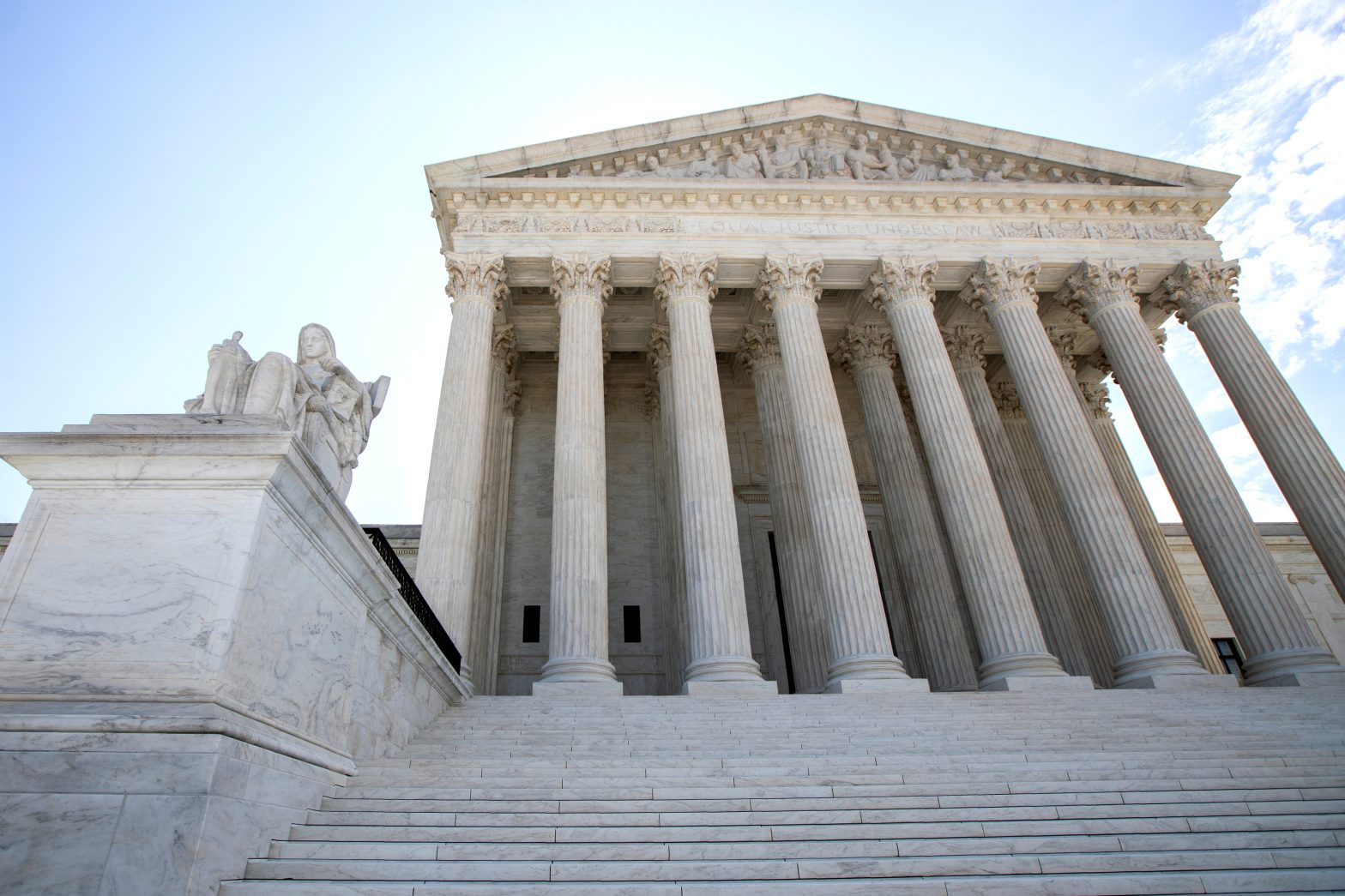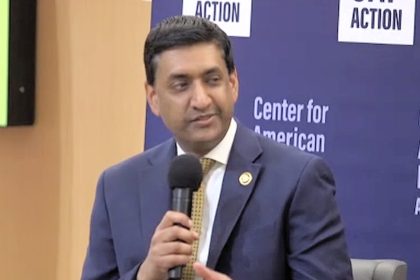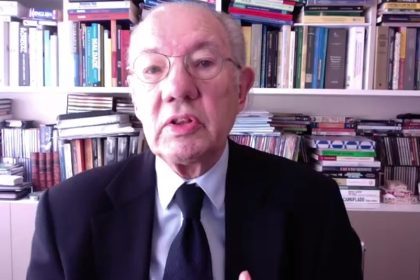Expert Panel Dissects 2023 Supreme Court Term

WASHINGTON — Another momentous U.S. Supreme Court term has come and gone, and this past week, the National Constitution Center and Anti-Defamation League hosted a review of the high court’s most important decisions of the 2022-2023 term and possible long-term ramifications.
Taking part in this year’s panel of experts were attorney and Newsweek Contributing Editor Dahlia Lithwick; constitutional scholar and former Dean of the UC Berkeley School of Law Erwin Chemerinsky; Miguel Estrada, partner in the Washington, D.C., office of Gibson, Dunn & Crutcher; former Solicitor General Gregory Garre, who is currently head of the Supreme Court and appellate practice in the Washington office of Latham & Watkins law firm and Frederick M. Lawrence, law professor/civil rights scholar & CEO of Phi Beta Kappa Society.
Here is some of what they had to say.
303 Creative LLC v. Audrey Elenis
As previously reported by The Well News, the Supreme Court ruled that the First Amendment does not allow the state of Colorado to force a graphic designer to create websites that would go against her religious beliefs.
“As the case has been widely reported in the press, there has been a fight about whether this is the end of public accommodation laws,” Estrada said. “There are some troubling issues, and it is possible that this is in fact more limited than people think … only future cases will tell us how far the court will go down this road.”
One key detail in this case is that designer Lori Smith was not filing a lawsuit due to a specific incident, but rather a potential future incident when she might be asked to design a wedding website for a same-sex couple, which according to her religious beliefs is a form of false marriage.
“After [the case], you can also put up a sign on your website that says, ‘We will serve all [customers] except for gay couples,’” Lithwick said. “That is remarkable in terms of departure or a carve-out of using compelled speech as a vehicle to do that.
“I do not think this is a trivial case, and I do feel very strongly that the absence of anyone on the other side of this case meant that there was only one compelling story told,” Lithwick concluded.
Students for Fair Admissions, Inc. v. President and Fellows of Harvard College
Here, the Supreme Court found affirmative action admissions policies at Harvard University and the University of North Carolina at Chapel Hill were unconstitutional, effectively reversing decades of precedent that prioritized race-conscious admissions policies in higher education.
“In a finding that was somewhat puzzling to those of us who have been involved in the admissions business, the court took a position that college admissions is a strict, zero-sum game,” Lawrence said. “Those who have done college admissions know this is not how admissions processes work.”
Garre, who represented the University of Texas at Austin in a previous case, Fisher v. University of Texas, said, “I think this is a really important symbolic win for conservatives. [But] this decision does not require race-blind admissions.”
Garre continued, “What [this case] really comes down to is taking race as checked as a box into account versus race as it bears on one’s individual experiences, so I expect we will see that. I think there are ways schools can respond to this decision and still seek to pursue diversity.”
Moore v. Harper
In a 6-3 decision in Moore v. Harper, the Supreme Court rejected a contentious legal theory aimed at giving state legislatures sole control of state election laws and political district maps.
“The arguments about the invalidity of the independent state legislature theory both based on commonsense reading of the text and precedent were clear here, and I think that drives the result to a large extent,” Lawrence said.
Lawrence continued, “The vitality of Bush v. Gore continuing forward is going to be interesting after this case. The fact that Justice Kavanaugh in his separate opinion relies on that … is noteworthy [and] is certainly worth watching.”
Allen v. Milligan
The Supreme Court ruled in a 5-4 decision that an Alabama congressional map likely violated the Voting Rights Act, holding that a map with only one congressional district having a Black majority was an inaccurate representation of a state in which one-in-four voters is Black.
“Last term was really consumed with issues of abortion, guns and religion,” Lithwick said. “This term was meant to be the referendum on race, [and] there were a lot of surprising wins for liberal views this term.”
Lithwick continued, “I think the knock-on effect is that voting rights groups are going to benefit in terms of not only Alabama voters but [also in] Louisiana and Georgia. This is in some sense a huge surprise to the public in many ways.”
Garre stated that Allen v. Milligan underscored the “most important relationship and interest on the court,” between Chief Justice John Roberts and Justice Brett Kavanaugh, who have become a common coalition this term.
“The ultimate 5-4 decision upholding that plan required the chief justice to pick up a vote, and he did that in Kavanaugh,” Garre said. “We have a very strong 6-3 conservative court, and what that means is it takes not just one, but two justices to flip the court.”
Garre continued, “If you put the chief in the middle of the court, that means you have to find someone else, and in this term at least, Kavanaugh supplied that.”
Haaland v. Brackeen
In Haaland v. Brackeen, the court ruled to uphold the Indian Child Welfare Act, a federal law that prioritizes placing Native American children in foster care with tribal families.
“The Supreme Court in a 7-2 decision upheld the ICWA but some of the key questions were unresolved,” Chemerinsky said. “A key issue in the case is whether the Indian Child Welfare Act is an impermissible racial preference.”
Chemerinsky continued, “There are two ways to characterize the preference of Native American families. One, as Kavanaugh did, is to say it’s a racial preference. The other is to see the preference based on political affiliation.”
Gonzalez v. Google and Twitter v. Taamneh
In Gonzalez v. Google, the high court ruled against the family of an ISIS attack victim from the 2015 terrorist attack in Paris, France, that killed 130 people, finding the family could not hold Google liable for posts made by the terrorist group prior to the attack.
The case was consolidated with Twitter v. Taamneh, which included a similar lawsuit aimed at holding Twitter liable for the role the platform played in ISIS terrorist efforts.
“People who use social media to commit wrongs are not legally different from people who use mail or phone to commit wrongs,” Estrada said. “At the end of the day, what the court essentially rules is you have to engage in the act in a culpable mental state.”
Groff v. DeJoy
Ruling in favor of a Christian postal worker who said working on Sundays went against his religious beliefs, the court found that employees should receive such accommodations unless employers can demonstrate it would result in “substantial increased costs” for the business.
“In some sense, it corrects a bad precedent under the de minimis standard as … a huge number of impacts were felt by religious minorities like Muslims and Sikhs whose garb and observances are suspect in Christian-dominated workplaces,” Lithwick said in discussing Groff v. DeJoy.
Lithwick continued, “In the aggregate, this is in some sense a fix that very well might help minority religions, and it may also be part of this larger move … to widen the scope of what is a religious accommodation.”
Biden v. Nebraska
As previously reported by The Well News, the Supreme Court in this case struck down President Joe Biden’s debt-relief plan that would have canceled a portion of the student debt owed by millions of borrowers, holding that a plan of this size would require congressional authorization.
“[In] the case brought by six states, the chief justice writes the opinion saying there is standing,” Frederick said. “This is in spite of the fact, as the administration argued and as Justice Kagan argued, that the party that really stood to be harmed by this debt-relief program was an independent state agency in Missouri, which was not a party, and that was not accidental.”
Going forward, Lithwick states that the legitimacy of the court has become and will continue to be a contentious issue.
“There’s a lot coming [next term], and it’s all shadowed by the public sense that the court is behaving like a partisan political body,” Lithwick said.
You can reach us at [email protected] and follow us on Facebook and Twitter
























